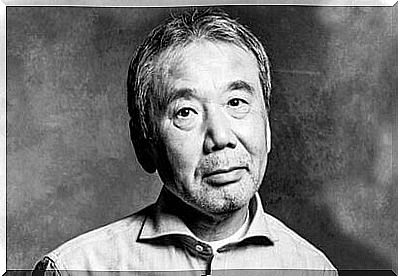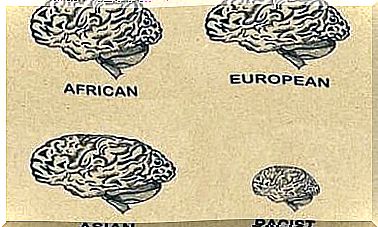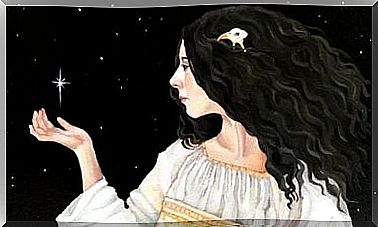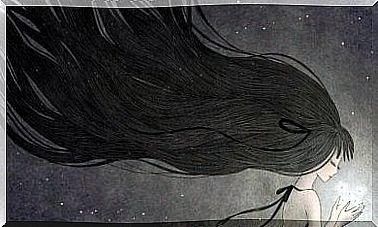Paul Auster, Biography Of The Writer Of Chance, Love And New York
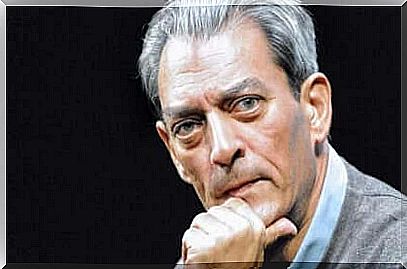
Many define Paul Auster as an illusionist, a true genius of letters. He is the author of the magic of chance, fate, love and, above all, this city that defines and inspires him so much: New York. He alone has the capacity to transform the mundane into the extraordinary and to trap us with his narrative charm.
It is often said that Paul Auster is either loved from the front line or hated forever. There are writers for whom the consensus doesn’t fit, either you adore them or they never convince you. The same is happening with this New York author. However, its presence in the publishing world has always been stellar. The New York Trilogy gave him worldwide fame. She introduced us to someone who would soon become that must-have name to look for in bookstores.
In addition to being a writer, he is a screenwriter and director. Always dressed in black, devoted to French poetry and Samuel Beckett, Paul Auster gives shape to this elegant and vindictive intellectualism, which has never hesitated to take a position on social and political questions. He did it during the Iraq war. And he’s doing it now, after the 70s, in the middle of Donald Trump’s era.
We are, without a doubt, facing one of the greatest contemporary American authors. Someone who combines existentialist aspects like no one else, sometimes touching magical realism. An exceptional voice which recently gave us his most titanic work, 4 3 2 1 , a splendid work which took almost seven years to see the light of day.
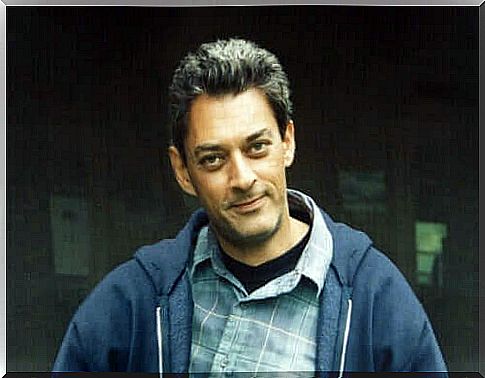
Paul Auster, the boy who loved books
Author Paul Benjamin Auster was born in 1948 and raised in South Orange, New Jersey. His family, of Polish Jewish origin, was supported by the work of his father, a businessman. This father figure marked Auster’s life in an ambivalent way. In many of his works, he often describes him as the man who was bored with books. She was the person who always fell asleep watching a movie and her mother tried to leave after the honeymoon.
Already a child, he found oxygen in books. The refuge of a nearby public library gave him a universe of discovery and an awakening. It was his uncle Allen Mandelbaum, a great translator, who passed on to him his passion for reading, the classics and this literary universe where he began writing very early on.
At the age of six, he skipped more classes because his reading and writing skills were much higher than those of his class. As he explains himself in more than one interview, he was then convinced that the alphabet was made up of more letters. An inverted L and an inverted A.
When the university years arrived, it was inevitable that he would follow the same path, one guided by letters, books, philology. This is how he began his studies in French, Italian and English literature at Columbia University in New York. He worked as a translator until the Vietnam War, when he decided to go to France.
The first books and The City of Glass
Paul Auster’s life has always moved between two cities that mark his life: New York and Paris. In his youth and before success surprised him, he had a multitude of jobs in both geographic locations. He made his first attempts to devote himself to cinema. He worked in an oil tanker and, later, he translated great authors in France such as Mallarmé, Jean Paul Sartre or Simenon.
His first novel, False Ball , arrived in 1976. He published it under the pseudonym Paul Benjamin and it was hardly a success. However, he did not give up. It was after the death of his father that he was able to devote himself fully to literary work. He inherited a small sum which enabled him to write an article on this sincere loss in The Invention of Solitude .
In 1981, he met the novelist Siri Hustvedt, whom he married. It was a time of great creation that would bear the greatest fruit: the New York Trilogy . The success was resounding and the name of Paul Auster began to shine in the publishing market. Later came Mr. Vertigo or Moon Palace .

Awards and recognition
In 1993, Paul Auster received the Medici Prize for the novel for the Leviathan. The 1990s are an equally fruitful period for this author who loves not only letters, but also cinema. His works, such as Auggie Wren’s Christmas , La Musique du Random , have been adapted for the cinema. However, many of these cinematic adventures as a director have not always been well received by critics.
Between 1999 and 2005, works as important as Timbuktu , The Book of Illusions , The Night of the Oracle and Brooklyn Follies appeared. Works in which his maturity and delicacy are evident, but still with a powerful narrative structure. All this earned her the Princess of Asturias Prize for Letters in 2006.
Paul Auster’s style
Paul Auster is the author of chance, love and destiny. Of this almost innocuous daily life where the most fascinating events occur. He has a simple style (on the surface), but in reality the bifurcations to which he leads us, the intersecting stories, the type of narrator he uses, make his works a magical, complex and absolutely perfect architecture.
Often a reality that still pursues the name of Paul Auster is one that refers to the identity of its protagonists. It is always suspected that many of them refer to their own person. In the New York Trilogy , for example, one of his characters is named after him. Also, in Leviathan , the narrator has his initials (Peter Aaron). In The Night of the Oracle , one of the main characters is called Trause (Auster’s anagram).
These are enigmatic brushstrokes that fascinate again and again. To read Auster is to share your vocation for books. Because reading, as he says, is a way of touching human beings, of nurturing their empathy. His novels reveal our complexity and thanks to that we get to know each other a little better and learn to survive in our own way.
The admirer of Kafka, lover of France, fanatic of New York, is this literary reference which should not be missing in our personal bookstores. A little over a year ago, he gave us his last job. It was 4 3 2 1 , a book he started writing at age 66, the age his father died. An exceptional 866-page novel which we hope will not be the last.
We look forward to it.
